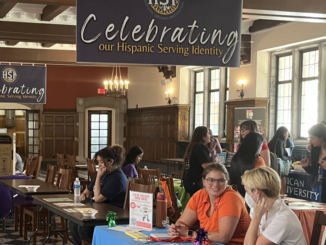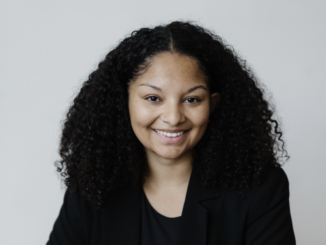
By Bianca Dinkha
Steve Thomma, executive director of the White House Correspondents’ Association (WHCA), shared his insights on Trump, the recent election, and the future of press relations and White House media coverage.
Thomma is a seasoned White House Correspondent and accomplished journalist with a notable career at esteemed news organizations such as Knight Ridder and McClatchy. The alumni, ‘76, studied political science and communications and previously served on the university’s Board of Trustees.
Below is the transcription of the interview.
What do you expect in the second Trump term, in terms of covering Trump, and his policy? What will White House coverage look like this time around?
The first year he was in office, he had one press conference in an entire year. He thought, wait a minute, I like hearing myself talk. This is Donald Trump. He’s a creature of television. So, after the first year, we saw him a lot.
Years two, three, and four were great. And then during COVID, the last year, he decided to do all the daily briefings himself, and he came out every day in the little cramped briefing room in the White House, and sometimes he’d stay for an hour answering questions. So that’s the part I hope comes back…We want to have access to the press secretary every day, preferably to ask questions —it’s a challenge.
Trump has promised retribution against enemies, including the press. What do you think will happen to the media and journalists who have been critical of Trump in the past? Why?
Well, I’ve seen and talked a few times on the campaign about revoking the broadcast licenses of television networks, but the networks are not licensed by the federal government, so that’s not a threat. I think if he wants to not let a reporter come into the briefing room because of the questions they ask, I think we would have to challenge that.
Once they let the press into the briefing room for a conference, they really need to let all the press in. Otherwise, it’s not a press conference, it’s not a briefing, it’s an interview. If he just wants to call in one network and do an interview, that’s his prerogative. Once he’s going to have several, that becomes a First Amendment [right].
Have you noticed any shift in how the public consumes political news, especially with the growth of social media platforms? How does this impact traditional White House reporting?
There’s too much information. It’s a great tool for the press covering the White House, both in terms of speed and the ability to reach more information for their reporting. [However] it has also created a flood of noise, competing noise, that drowns them out. Much of it is wrong and has hurt objective truth in the process, not just for journalists, but for everybody.
Social media, particularly X, which is by far dominant, rewards heat, not light. It rewards the extremes. People go to the most hyperbolic statement. Neither of which is ever true, but it rewards passion, usually anger. Not love, [but] inaccuracy.
How has the role of political journalists shifted with the rise of mistrust in the media?
One, I think we should have less of it…I think we flood voters with too much information too early. We lose audiences because they tune it out, understandably. I think we do too much political journalism and we start to sacrifice policy reporting and writing about the substance of governing…I think journalists should [be] a little less political and a little more policy for the next year.
The second thing is resisting the urge to make it all about Trump. Although he dominates the political universe, he’s the president and he’s a bigger than life figure. He certainly has dominated and taken over the Republican Party, but there are other ideas out there in politics and I think they’re all worth exploring.
What advice would you give young journalists facing the current political climate?
Well, I would say, really, really, really leave your opinions at the door. It’s easier to have no opinion…I would ask less “gotcha” questions when you talk, particularly to voters. I found that a lot of reporters I would go out with on the trail when we’d be talking to voters [and] would argue with voters. They would try to tell them they were wrong.
That’s not your job. I always asked open questions…That’s my advice. [Have an] open mind. Admit what you don’t know, and let other people tell you.



